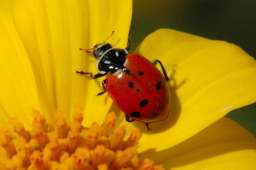(Matthew 12) He will not wrangle or cry aloud, nor will any one hear his voice in the streets; he will not break a bruised reed or quench a smoldering wick, till he brings justice to victory.
Our age, like every age I suppose, is marked by wrangling. And we, like people of every age, still believe that wrangling, even when it leads to war, is the best strategy to address an injustice.
I like to think I’m above the fray. But I always join in. I do so by complaining about some politician or murmuring about some perceived slight and so in my own way add to the great common wrangle.
But Jesus is different. He is audacious enough to employ an entirely different strategy. His strategy for the triumph of justice, which is not really a strategy, but more like a new kind of game, has to do with small acts of gentleness. His way of justice is about doing no harm, about doing no violence to anyone’s soul. His justice is concern with bruised reeds and smoldering wicks. And to the bruised ones he says, "Take my yoke upon you, and learn from me; for I am gentle and lowly in heart, and you will find rest for your souls. (Matthew 11)."
When we remember that a reed is already a symbol for weakness, and so a bruised reed is a thing near desolation, we catch a glimmer of his gentle love. A love that walks slowly with the bare feet of attentive care. In this new kind of game we could even say that justice is a synonym for love.
I recall the warm summer evening when during a moderate rain, brought on by a passing thunder storm, my son Lucas, in his early teens at the time, ran out of the house and dashed around the front lawn playing the clown.
Earlier that day we had been playing "Sorry" and as these games go, we competed as strenuously as we could, knocking one another of the board at any and every opportunity. But now, here we were, all gathered at the picture window watching Lucas in the rain. He danced, hooted, did silly walks, hopped like a rabbit and turned cartwheels.
Our small kids, leaning over the couch, faces against the glass, squealed with delight while Deb and I stood behind and laughed. Lucas was at play in a game with no rules. He was making everything up as he went. And I loved him for it.
Here were two games with vastly different rules and outcomes and ways of participating. The one is the tit-for-tat game we all know how to play; the other is a game that has at its heart the antithesis of rivalry. It’s this new game that I’m invited to, where getting my fair share has no currency and what is just, takes on a new light.
This is the invitation Jesus invites us to play. And every day is a new opportunity to join in the new game.
Gentle souls leave it to others to make a commotion. Gentle souls don’t know what the commotion is about. Gentle people play by a different set of rules.
Technorati Tags: Gospel, Justice, Christianity, Peace, Lucas Berg

 This is what the lady bug did. I watched from my lawn chair beside the barbecue. The spotted beetle landed for just a moment and before it had reasoned or made up its mind it flew straight up. Catching the wind about a story off the ground it sailed more than flew, weaving and swerving into a cloud covered sky, to a destination yet unknown. Considering its size, the distance it traveled was great. It was a leap I admired.
This is what the lady bug did. I watched from my lawn chair beside the barbecue. The spotted beetle landed for just a moment and before it had reasoned or made up its mind it flew straight up. Catching the wind about a story off the ground it sailed more than flew, weaving and swerving into a cloud covered sky, to a destination yet unknown. Considering its size, the distance it traveled was great. It was a leap I admired.